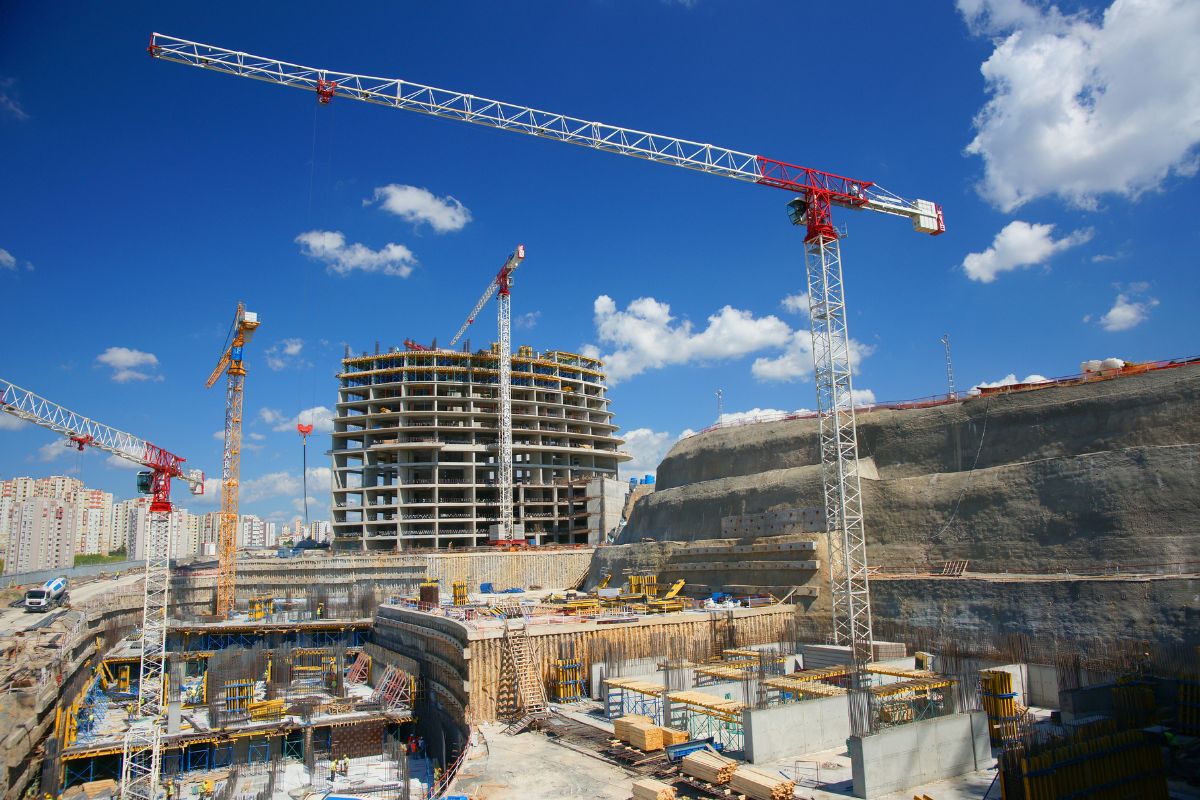Key Takeaways
- Understand the Tender Types and Requirements: Familiarize yourself with open, restricted, and negotiated tenders in Botswana, and ensure compliance with Public Procurement and Asset Disposal Board (PPADB) regulations.
- Prepare Comprehensive Documentation: Submit clear and organized proposals with essential documents like work plans, financial statements, and tax clearance certificates to meet tender specifications.
- Showcase Technical Expertise and Local Value: Highlight your experience, skills, local labor engagement, and alignment with Botswana’s development goals to enhance your bid’s competitiveness.
- Offer Competitive but Realistic Pricing: Balance affordability and quality in your cost estimates, ensuring prices are market-aligned without underpricing.
- Build Strong Industry Relationships: Network with key stakeholders and partner with local firms to establish credibility and improve your chances of winning tenders.
- Overcome Challenges Strategically: Navigate bureaucracy with accurate, up-to-date documentation, and streamline processes to meet tight submission deadlines.
Winning construction tenders in Botswana can feel like navigating a competitive maze, but with the right approach, you can position yourself for success. The construction industry in Botswana is thriving, offering countless opportunities for contractors ready to showcase their expertise and deliver value. However, standing out in a crowded market requires more than just submitting a bid—it demands strategy, preparation, and a deep understanding of the local landscape.
You need to know how to craft a compelling proposal, meet compliance requirements, and build strong relationships within the industry. Whether you’re a seasoned contractor or new to the Botswana market, mastering these elements can significantly improve your chances of securing lucrative projects. By focusing on key strategies and aligning your bid with client expectations, you’ll be better equipped to win tenders and grow your business in this dynamic sector.
Understanding Construction Tenders In Botswana
Construction tenders in Botswana are formal requests for proposals to undertake projects within the public or private sector. These tenders often involve infrastructure, housing, or commercial developments. By understanding their structure, you can enhance your submission’s success.
Types of Tenders in Botswana
- Open Tenders: Accessible to all qualified contractors, these tenders are competitive and transparent. Public entities often use them for large-scale projects.
- Restricted Tenders: Only pre-selected contractors can apply. Organizations prefer these for specialized or sensitive projects.
- Negotiated Tenders: Awarded after direct negotiation between a client and a contractor, primarily for unique or urgent projects.
Key Documents and Compliance
Tender submissions in Botswana require specific documentation. Examples include a detailed work plan, financial statements, and proof of relevant licenses. Compliance with Botswana’s Public Procurement and Asset Disposal Board (PPADB) regulations is mandatory for public sector tenders. Failure to meet these standards can result in disqualification.
Evaluation Criteria
Government and private entities assess tenders based on cost, quality, timelines, and adherence to project specifications. Including local content and employing citizen labor positively influence evaluations. Providing realistic cost estimates and demonstrating expertise are critical.
Understanding the various tender categories, submitting accurate documentation, and aligning proposals with evaluation criteria improve your chances of securing projects.
Key Requirements For Winning Tenders
Understanding and meeting critical requirements directly impacts your success in securing construction tenders in Botswana. Focus on legal compliance, financial readiness, and showcasing expertise to strengthen your bids.
Legal And Regulatory Compliance
Ensure compliance with Botswana’s procurement laws and regulations to qualify for tenders. Register your business with Botswana’s Companies and Intellectual Property Authority (CIPA) and obtain an operating license. Fulfill the requirements of the Public Procurement and Asset Disposal Board (PPADB), including obtaining relevant certifications. Include tax clearance certificates, proof of employee compliance with labor laws, and environmental approvals for projects requiring them.
Financial Preparedness
Demonstrate sound financial capacity to execute projects. Provide audited financial statements from the past two to three years to establish credibility. Highlight access to credit facilities or bank guarantees if required for large-scale tenders. Maintain competitive pricing without compromising quality to strengthen your proposal’s cost assessment.
Demonstrating Technical Expertise
Showcase your technical skills to meet project standards. Include a portfolio of completed projects detailing scope, duration, and client satisfaction. Submit CVs of key personnel with qualifications in engineering, project management, or specialized skills. Attach detailed work plans and methodologies tailored to tender requirements to emphasize planning capabilities and resource management.
Crafting A Competitive Proposal
A well-prepared, strategic proposal increases your chances of winning construction tenders in Botswana. Tailor your submission to meet client expectations and demonstrate your company’s value.
Clear And Concise Documentation
Organize your proposal to present required documents in a direct and structured manner. Include work plans, timelines, technical drawings, and financial statements, ensuring each aligns with the tender’s specifications. Avoid including irrelevant or overly detailed information to maintain focus. Highlight compliance with PPADB requirements, such as tax clearance certificates and registration details from CIPA. Ensure documents are error-free to enhance credibility and avoid disqualification.
Highlighting Local Capabilities
Emphasize your contribution to Botswana’s economy by showcasing local capabilities. Detail your use of citizen labor, participation of local subcontractors, and procurement of materials from local suppliers. Mention any certifications or programs supporting Botswana’s development goals. Develop a narrative around your alignment with national initiatives, as this resonates positively with evaluators and boosts your competitiveness.
Offering Competitive Pricing
Provide a pricing structure that balances affordability and value. Detail material costs, labor expenses, and contingencies, ensuring they are realistic and justifiable. Avoid underpricing, as it may indicate poor quality or financial instability. Compare your pricing with market standards to remain competitive. Where feasible, incorporate cost-saving practices like sourcing local materials to reduce expenses and strengthen your bid.
Building Strong Relationships
Developing strong connections in Botswana’s construction industry enhances your chances of winning competitive tenders. Focusing on strategic networking and partnerships strengthens your credibility and market presence.
Networking With Key Stakeholders
Engage with key stakeholders to establish a solid presence within Botswana’s construction sector. Connect with government officials, PPADB representatives, and project managers actively involved in tender processes. Attending industry events, forums, and workshops is effective for expanding your professional network and staying updated on upcoming projects. Building trust through consistent communication and professional conduct increases your visibility and improves your reputation among decision-makers.
Leveraging Partnerships With Local Firms
Partnering with local firms showcases your commitment to Botswana’s economy and compliance with localized preferences. Identify reputable, established local companies with experience in similar projects. Merging your technical expertise with their local insights not only aligns with PPADB’s focus on local content but also enhances your bid’s competitive edge. Collaborating with citizen-owned firms further demonstrates your dedication to boosting local employment and can positively influence tender evaluations.
Overcoming Common Challenges
Winning construction tenders in Botswana demands overcoming several obstacles. Addressing bureaucracy and tight deadlines effectively can significantly improve your success rate.
Navigating Bureaucracy
Understanding Botswana’s procurement process helps you navigate bureaucratic challenges. Ensure compliance with all requirements set by the Public Procurement and Asset Disposal Board (PPADB). This includes acquiring relevant certifications, tax clearances, and registrations with the Companies and Intellectual Property Authority (CIPA).
Maintain accurate and up-to-date documentation to avoid delays or disqualification. Double-check forms and submission details to ensure accuracy before deadlines. Building relationships with regulatory entities can provide insights into resolving issues quickly.
Meeting Tight Deadlines
To manage tight submission timelines, develop an internal process for preparing tender documents efficiently. Create templates for commonly required documents like financial statements, work plans, and technical proposals. Organizing your submission materials beforehand reduces time spent during the tender application phase.
Allocate resources for each project to ensure timely delivery without sacrificing quality. If scheduling conflicts arise, prioritize tasks and communicate promptly with stakeholders to manage expectations.
Construction Tenders in Botswana Conclusion
Winning construction tenders in Botswana requires a strategic approach, attention to detail, and a commitment to meeting industry standards. By aligning your efforts with client needs, showcasing your expertise, and adhering to compliance requirements, you can position yourself as a strong contender in this competitive market.
Building relationships within the industry and emphasizing local contributions can further enhance your credibility and appeal. Stay proactive, organized, and focused on delivering value to stand out and secure more opportunities in Botswana’s thriving construction sector.





